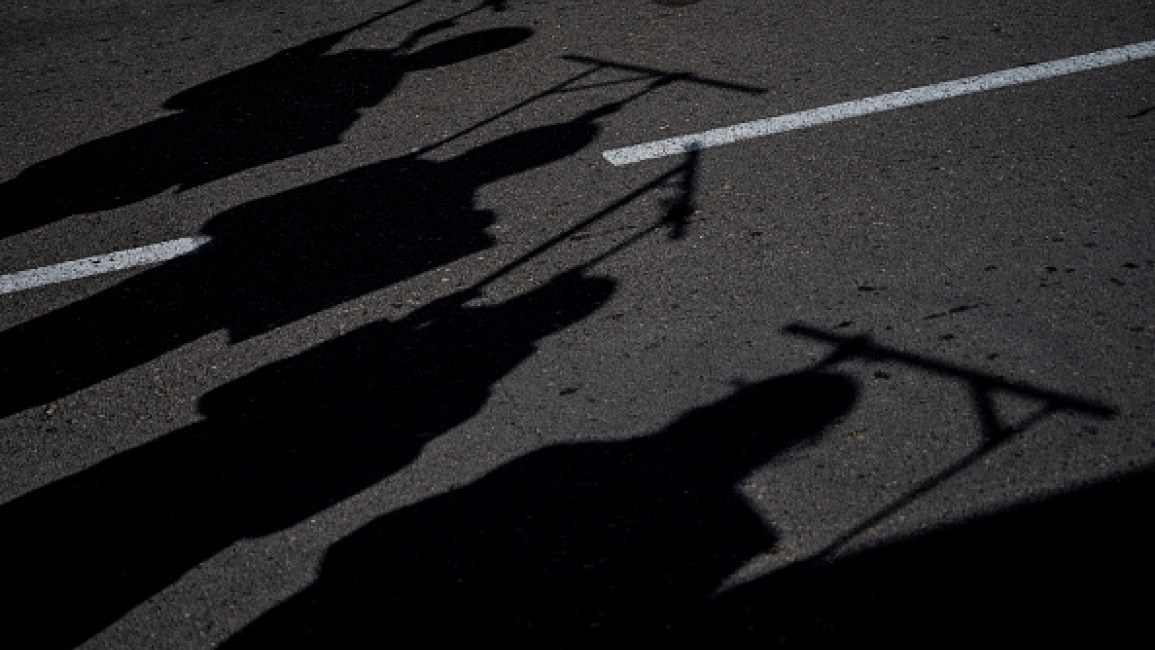Iran hangs seven more in execution 'spree': rights group
Iran executed seven men in two prisons outside Tehran on drugs and rape charges Wednesday, a rights group said, accelerating what activists describe as a hanging spree over the past two weeks.
The United Nations had warned on Tuesday of a "frighteningly" high number of executions in the country after a rare execution on Monday of two men on blasphemy charges.
Three men were executed on drug-related charges in Ghezal Hesar prison in the city of Karaj outside Tehran, the Norway-based Iran Human Rights (IHR) NGO said.
3 more Iranian protesters sentenced to death today as the toll of executions in Iran continues to rise to over 200 in 2023 alone. This Islamic regime is murdering innocents DAILY. Raise your voice for #Saeed_Yaghoubi, #Saleh_Mirhashemi and #Majid_Kazemi pic.twitter.com/lVG4zq7XLj
— چراغ آسمان (@cheragh_aseman) May 9, 2023
It added that four other men were hanged on rape charges in Rajai Shahr prison, also in Karaj.
The judiciary's Mizan Online website confirmed the three executions on drug charges, saying the convicts were members of a cocaine distribution cartel. There has been no official confirmation so far of the four executions on rape charges.
IHR said the latest hangings mean Iran has seen at least 64 executions in the last 12 days alone.
"The killing machine of the government is accelerating - its goal is to intimidate the people and its victims are the weakest people in society," said IHR director Mahmood Amiry Moghaddam.
IHR posted footage which it said showed families of the three men executed on drug charges protesting outside Ghezel Hesar prison in a last-ditch bid to stop the hangings.
Gunfire was audible in the video and it said police used tear gas and batons to disperse the protest. One family member was hospitalised with severe injuries after being beaten, it added.
فوری: درگیری در مقابل زندان قزلحصار کرج؛ ۲۰ اردیبهشت
— Iran Human Rights (IHR NGO) (@IHRights) May 10, 2023
حسین پنجک، عبدالحسین امامی مقدم و بابک آقایی نام سه زندانی است که در زندان قزلحصار جهت اجرای حکم به سلول انفرادی منتقل شدهاند. خانواده و بستگان این زندانیان در مقابل زندان قزلحصار تجمع کردند و ماموران آنها را با باتون مورد… pic.twitter.com/gUgTADsRvd
Campaigners accuse Iran of using the death penalty as a means to intimidate the public following weeks of protests that erupted in September last year following the death in custody of Mahsa Amini after she was arrested for allegedly violating Iran's dress rules for women.
At least 582 people were executed in Iran last year, the highest number of executions in the country since 2015 and well above the 333 recorded in 2021, IHR and Paris-based Together Against the Death Penalty (ECPM) said in a joint report in April.
But the pace of executions has been even more intense in 2023, with IHR now counting at least 218 executions so far this year.
On Tuesday, UN human rights chief Volker Turk cautioned that Iran is on an "abominable" track record this year with an average of more than 10 people being put to death each week.
Iran executed two people on Monday in a rare case of conviction for desecrating the Quran and insulting the Prophet Mohammad, prompting US condemnation and an outcry from human rights groups.
🧵Today's execution of Yousef Mehrdad & Sadrollah Fazeli Zare for "apostasy" marks a shocking new low for Iran's authorities & only furthers Iran’s pariah status. They were hanged solely for social media posts in a grotesque assault on the rights to life & freedom of religion. 1/ pic.twitter.com/T6eVmKqFaC
— Amnesty Iran (@AmnestyIran) May 8, 2023
Mizan Online said the three executed on drugs charges were "members of the Panjak gang, the largest cocaine distribution cartel, which was one of the main drug cartels in the country".
The New York-based Center for Human Rights in Iran (CHRI) said the supreme court had confirmed death sentences against three men over the alleged killing of a Basij militiaman during protests in the city of Isfahan in November.
It described the executions as a "killing spree" to "silence dissent".
Rights groups have warned that members of ethnic minorities - in particular the Baluch minority, who unlike most Iranian are mostly Sunni Muslim - have been disproportionately targeted by the current wave of executions.
Iran executes more people a year than any other nation except China, according to human rights groups including Amnesty International.


![President Pezeshkian has denounced Israel's attacks on Lebanon [Getty]](/sites/default/files/styles/image_684x385/public/2173482924.jpeg?h=a5f2f23a&itok=q3evVtko)



 Follow the Middle East's top stories in English at The New Arab on Google News
Follow the Middle East's top stories in English at The New Arab on Google News


